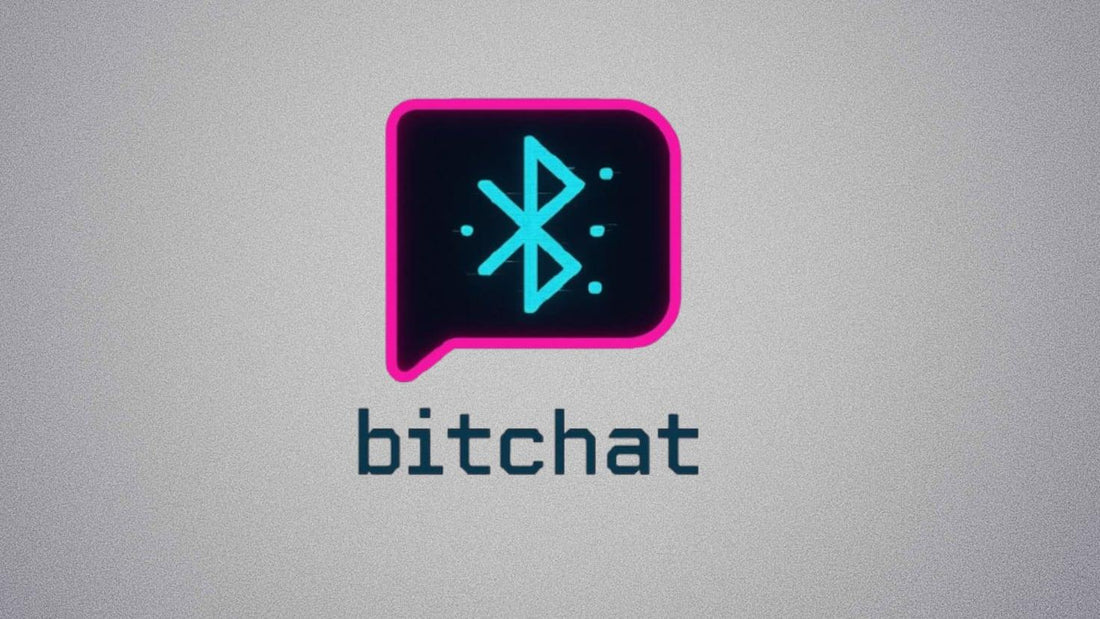BIT / BitChat Mesh: Communication without Internet in times of crisis
Share BIT / BitChat Mesh: Communication without Internet in times of crisis

The new generation of decentralized messaging
When a country enters a crisis and the government cuts off internet access, information becomes a survival tool. In 2025, Nepal became a global example of how a community can stay connected even when mobile networks and Wi-Fi were disabled: the solution was called BitChat Mesh .
Developed by PermissionlessTech —an initiative spearheaded by Jack Dorsey, founder of Twitter and Block— BitChat is a decentralized messaging app that works without the internet, without central servers, and without the need for a SIM card. Its goal is simple but powerful: to allow people to communicate directly, even when all else fails.
What is BitChat Mesh?
BitChat uses a mesh network based on Bluetooth Low Energy (BLE) . Instead of relying on a tower or router, devices connect to each other, forming a self-sufficient local network. Each phone acts as a node , capable of sending and relaying messages to other nearby nodes, which in turn pass them on to the next, and so on.
This system allows a message to travel through multiple devices until it reaches its destination, without ever going through the internet or a central server. It's the same principle applied in communication systems between sensors or drones, but adapted for civilian use.
BitChat was intended as a censorship-resistant tool, useful during digital blackouts , and essential for remote or isolated communities .
How does BitChat work?
BitChat's operation is based on three technological pillars:
1. Bluetooth Mesh Network
Each phone with the app installed detects other nearby devices using Bluetooth LE. When a message is sent, it can jump from device to device until it finds the correct destination.
Effective range : about 100 meters per jump, although it depends on the environment.
No infrastructure : No internet, Wi-Fi, or cell towers required.
Self-organizing : Nodes are automatically detected when they come into range.
Local Retention : If a user disconnects, messages are saved until they reconnect to the mesh network.
This type of communication has already been tested in apps like FireChat and Bridgefy , used in protests in Hong Kong, Myanmar, and Cuba. However, BitChat introduces a layer of modern encryption and integration with the decentralized Nostr protocol, making it a more secure and flexible tool.
2. Encryption and privacy
BitChat uses an end-to-end encryption (E2EE) system based on protocols such as Noise Framework and AES-GCM , with X25519 key exchange. This means that messages can only be read by the sender and recipient.
Other safety features include:
Ephemeral identities : no phone number, email address, or centralized registration required.
Anonymous messaging : Users identify themselves with temporary aliases.
Emergency Erase : Triple tapping the app logo deletes all local content.
Fake traffic : Generates “fake messages” to avoid pattern analysis by third parties.
This approach protects privacy even in environments of surveillance or censorship.
3. Fallback to the Internet through Nostr
When there is at least one device with partial internet access (e.g., via VPN or satellite network), BitChat can use the Nostr protocol to extend the network's reach.
This way, local messages can cross regions without connectivity and reach connected areas, maintaining synchronization between nodes.
This makes BitChat a hybrid application, capable of operating in both fully offline and semi-connected modes, adapting to the user's situation.
Real Case: BitChat in Nepal
In 2025, the Nepalese government temporarily suspended internet access in several regions of the country due to civil unrest. Thousands of citizens were left without communication overnight.
Local volunteers and tech communities began distributing BitChat Mesh on Android and iOS devices, creating a makeshift decentralized network in dense urban areas like Kathmandu.
Thanks to the use of Bluetooth Mesh and citizen collaboration, hundreds of users were able to send messages, coordinate assistance, share alerts, and maintain the flow of information without relying on the internet or authorities.
This episode demonstrated BitChat's potential as a civil communication tool in situations of censorship, natural disasters, or massive network outages.
How to use BitChat step by step
Below is a practical guide based on the project's official documentation:
Install the app: available at bitchat.free or on Google Play.
Create a nickname: Choose a temporary username (no registration or phone required).
Start network: The app automatically begins detecting nearby devices.
Join a channel: for example, /j #barrio to communicate with people in your area.
Send messages: Write short, clear text. Messages will travel through the mesh network.
Protected channels: Use passwords with /pass to create private chats.
Panic mode: Triple-tap the logo to wipe data if your security is at risk.
Smart fallback: If a node has Internet, the message can travel via Nostr to other locations.
Example of useful commands:
| Action | Command | Description |
|---|---|---|
| Enter local channel | /j #centro
|
Create or join a neighbors channel |
| Private message | /m @Luis ¿Todo bien?
|
Send a direct encrypted message |
| View connected users | /w
|
List nearby active nodes |
| Protect channel | /pass clave123
|
Activate password for the group |
| Clear local data | Triple tap | Clear messages and cache instantly |
Advantages and limitations
Advantages
Decentralized and outage-resistant communication.
No phone number or internet connection required.
Encryption and anonymity by default.
Ideal for rural areas, protests, disasters or network failures.
Limitations
It depends on the user density: the more people have the app, the more stable the network will be.
Limited Bluetooth range (up to 100 m per hop).
Possible high battery consumption.
It is not designed to send large files or multimedia.
The encryption feature has not yet been audited by an independent third party.
Comparison with other mesh apps
| Application | Technology | Encryption | Server dependency | Current status |
|---|---|---|---|---|
| BitChat Mesh | Bluetooth LE + Nostr | Yes, E2EE | No | Active (PermissionlessTech) |
| Bridgefy | Bluetooth LE | Partial | Yeah | On pause after vulnerabilities |
| FireChat | Wi-Fi Direct + Bluetooth | No | Yeah | Discontinued |
| Briar | Wi-Fi / Bluetooth / Tor | Yes, E2EE | No | Active (Android) |
BitChat stands out for its combination of modern privacy, hybrid flexibility , and an accessible interface, designed for both everyday users and community organizations.
How to implement BitChat in a community
Preemptive promotion: Distribute the app before a crisis occurs.
Basic training: teaching simple commands and safety practices.
Mobile nodes: Designate volunteers with power banks or radios to act as repeaters.
Thematic channels: health, logistics, security, official information.
Short messages: prioritize plain text to improve transmission speed.
Periodic drills: Test the local network regularly.
With these measures, a community can ensure basic communication even during total power outages.
Conclusion
In a world increasingly dependent on connectivity, BitChat Mesh represents a step towards digital autonomy .
It's not just about technology: it's a tool to preserve freedom of communication when everything else goes down.
Their success story in Nepal demonstrates that decentralized networks can save lives, keep information flowing, and empower people in the face of censorship or infrastructure collapse.
No Signal — The Guide recommends exploring and practicing with BitChat as part of any urban preparedness plan.
Knowing how to communicate without the Internet is not paranoia: it's prevention.
Download No Signal The Guide
Learn how to prepare for power outages, grid failures, urban crises, and global emergencies.
Available in Spanish, English, and Norwegian at www.nosignaltheguide.com
Follow us on social media for more resilience tools and strategies.
